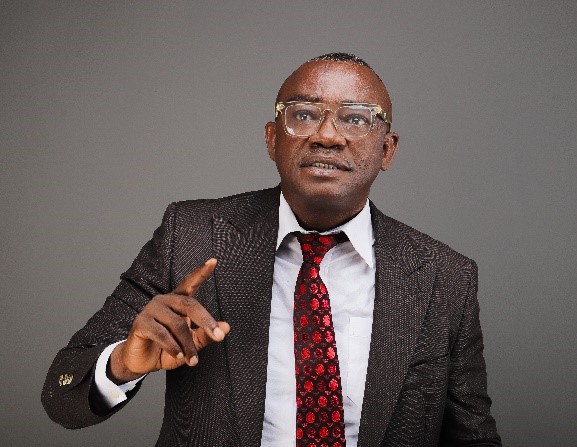By Surv. Prof. Forster SARPONG
In the midst of Ghana’s determined effort to exit one of the most turbulent economic crises in its Fourth Republic history, a wave of renewed hope has been sparked by the approval of a $360 million financing package by the World Bank under the Second Resilient Recovery Development Policy Operation (DPO).
This endorsement is more than an injection of capital, it is a clarion call to action, trust in reform, and a pivotal moment in the nation’s economic reset agenda.
It signifies Ghana’s re-entry into the circle of credible reforming nations and places a spotlight on the role of coordinated governance, accountability, and investment-friendly reforms as essential tools for economic revival.
Following years of fiscal distress, exacerbated by the COVID-19 pandemic, Russia-Ukraine war spillovers, and global tightening of monetary policy, Ghana’s economic indicators had hit crisis levels. Inflation peaked at 54.1% in December 2022, public debt surged beyond GH₵575 billion (88.1% of GDP), and international capital markets became inaccessible. These shocks exposed deep vulnerabilities within both the public and private sectors and ignited widespread hardship across the population.
Today, with the World Bank’s financing commitment and a broader macroeconomic stabilisation program under the $3 billion IMF Extended Credit Facility (2023–2026), Ghana is entering a new chapter, one marked by opportunities to rebuild better, restore credibility, and redirect national development.
A Strategic Boost to the Government’s Reset Agenda
The Second DPO aligns directly with the Government of Ghana’s Post-COVID-19 Programme for Economic Growth (PC-PEG) and the Public Financial Management (PFM) Strategy (2025–2029). These frameworks are designed to engineer macroeconomic resilience, modernise governance systems, and improve resource allocation.
The new funding is intended to:
- Support macroeconomic stability through fiscal consolidation and improved public debt management,
- Enhance structural reforms in digital governance, procurement, and state-owned enterprise oversight,
- Boost social protection via expanded cash transfers and food security systems,
- Advance climate-resilient and inclusive growth, especially in agriculture and energy.
By anchoring these reforms in performance-based outcomes, the World Bank has made it clear that this support is both conditional and catalytic.
Public Sector Reforms: From Bureaucracy to Performance
The public sector is central to this transformation. Currently, over 55% of domestic revenue is spent on public sector wages, yet service delivery gaps persist across health, education, and infrastructure. This funding will enhance:
- Performance-based budgeting in ministries,
- Digital expansion of the Ghana Integrated Financial Management Information System (GIFMIS) to district levels,
- Rollout of e-procurement platforms to curb corruption and inefficiency,
- Civil service reforms aimed at competency, accountability, and productivity.
- This represents a decisive shift from process-driven administration to results-oriented public service marking a philosophical and operational reset.
- Private Sector Revival: Confidence, Credit, and Competitiveness
The private sector, long crippled by high cost of credit, tax unpredictability, and weak infrastructure—stands to gain immensely. The World Bank’s support signals improved macro-stability and renewed investor confidence, encouraging:
- Reduction in policy rates (currently at 29%) and average lending rates (between 33–36%),
- Predictable business environment through enhanced tax administration and digitisation,
- Support for MSMEs via financial inclusion tools and investment climate reforms,
- Resilience-building through climate-smart agriculture, logistics systems, and green energy transitions.
Notably, the Ghana Investment Promotion Centre (GIPC) anticipates FDI inflows of $2.2 billion by the end of 2025, up from a low of $1.1 billion in 2023.
External Debt and Creditors: Building Back Credibility
Following Ghana’s suspension of external debt payments in December 2022 and the subsequent restructuring of $5.4 billion of external commercial debt, the country’s reputation among international creditors was on the line.
- The World Bank’s commitment sends a powerful signal:
- It confirms institutional trust in Ghana’s reform path,
- Enhances the credibility of ongoing debt negotiations with Eurobond holders and bilateral partners,
- Reduces perceived sovereign risk, evidenced by the 280 basis point drop in Ghana’s 2032 Eurobond yields since March 2025,
- Opens the door for blended and concessional finance, essential for long-term growth infrastructure.
By demonstrating governance reforms and revenue mobilisation progress (targeting 18% tax-to-GDP by 2026), Ghana is gradually repositioning itself as a trustworthy borrower.
Impact on Citizens: Social Equity and Economic Inclusion
- Beyond fiscal indicators, the DPO is structured to deliver measurable benefits to the everyday Ghanaian:
- Over 350,000 households to receive targeted cash transfers through the LEAP program,
- School feeding expanded to cover 3.8 million basic school pupils, improving nutrition and enrolment,
- Youth and women-led businesses to benefit from digital financial inclusion initiatives,
- Climate adaptation programs for rural communities to ensure food and income security.
These initiatives will enhance social equity, protect the vulnerable, and promote broad-based growth, a key requirement for political and economic stability.
Conclusion:
A Defining Moment in Ghana’s Development Journey
The approval of the $360 million World Bank financing package is not just a line item in Ghana’s budget, it is a declaration of confidence, a platform for reform, and a bridge toward economic sovereignty. Yet, it also comes with clear expectations: transparency, discipline, and sustained commitment to transformation.
Ghana stands at an inflection point. This is the time to entrench fiscal prudence, unlock private sector vitality, rebuild public trust, and embed resilience into governance systems. It is not merely about economic growth, it is about national reset, institutional maturity, and social inclusion.
If this opportunity is seized with political will, technical expertise, and citizen engagement, Ghana can chart a course out of crisis toward prosperity. If wasted, it could deepen disillusionment and erode future prospects.
As Ghana reclaims its place among emerging economies, let this funding not be remembered as a bailout but as the bold first step in building a resilient, equitable, and sovereign future.
“Money can build walls or bridges. Ghana now has the means, let’s choose the bridge.”










